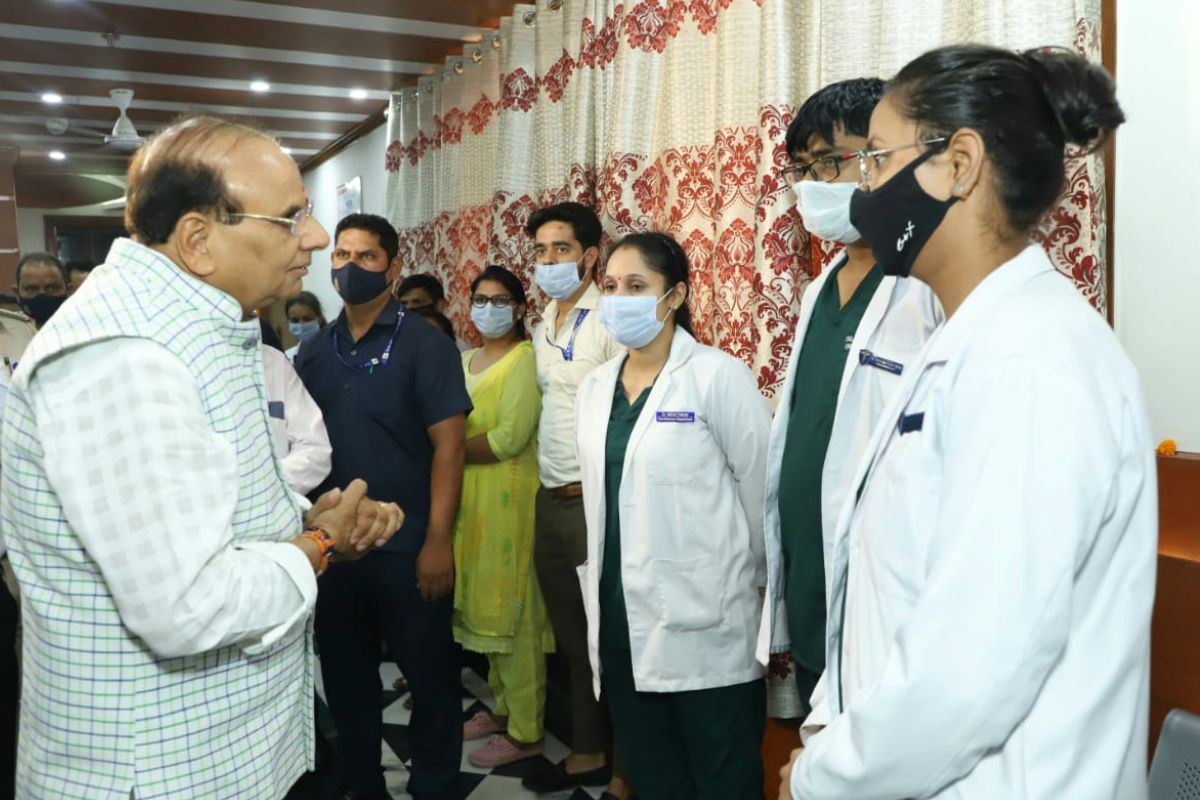Lieutenant Governor Vinai Kumar Saxena on Sunday visited Chaudhary Brahm Prakash Ayurved Charak Sansthan (CBPACS) and directed officials to explore new avenues to adopt ancient, often lesser known, traditional medical practices so as to develop this institute into a leading ayurveda centre in the world.
He urged the officials to expand the capacities of the hospital and adopt newer medical procedures so that the centre is equipped with holistic treatment facilities for all diseases.
At the same time, Saxena said that the CBPACS could be developed into a centre for knowledge sharing with neighbouring countries, in lines with the vision of Prime Minister Narendra Modi.
The Delhi Lieutenant-Governor, accompanied by senior officials, also launched a mega plantation drive of 10,000 medicinal trees on the campus with active participation of students and locals.
He further asked the officials to utilize at least 25 acres of the available land for plantation of medicinal trees like Moringa, Amla, Triphala, and so on. He also directed to plant ‘Desi Gulab,’ which is used for various medicinal purposes, over at least one acre of land.
Saxena took a round of the entire hospital and interacted with the patients, who are undergoing treatment for various ailments at the hospital. He also inspected the paediatrics department and sought to know the treatment being administered to the children.
The Delhi L-G directed the hospital authorities to further strengthen the existing leech therapy department and also develop a fish treatment and Tibetan medicine departments in coming days.
Saxena asked the officials to open various facilities like Panchakarma, naturopathy and Ayurvedic massage to the general public at a reasonable rate so that the centre receives a larger footfall while adding to the financial sustainability of the hospital.
He directed officials to tie up with big ayurvedic and naturopathy institutions in the country and offer similar services and treatments in Delhi for which the people have to travel to other states.
Saxena also instructed to open a cafeteria so that the people coming from far off places can find a leisure space in the natural ambience of the hospital. He also asked them to collect feedback from the passed-out students about the job prospects and accordingly increase the training capacity of the hospital.









